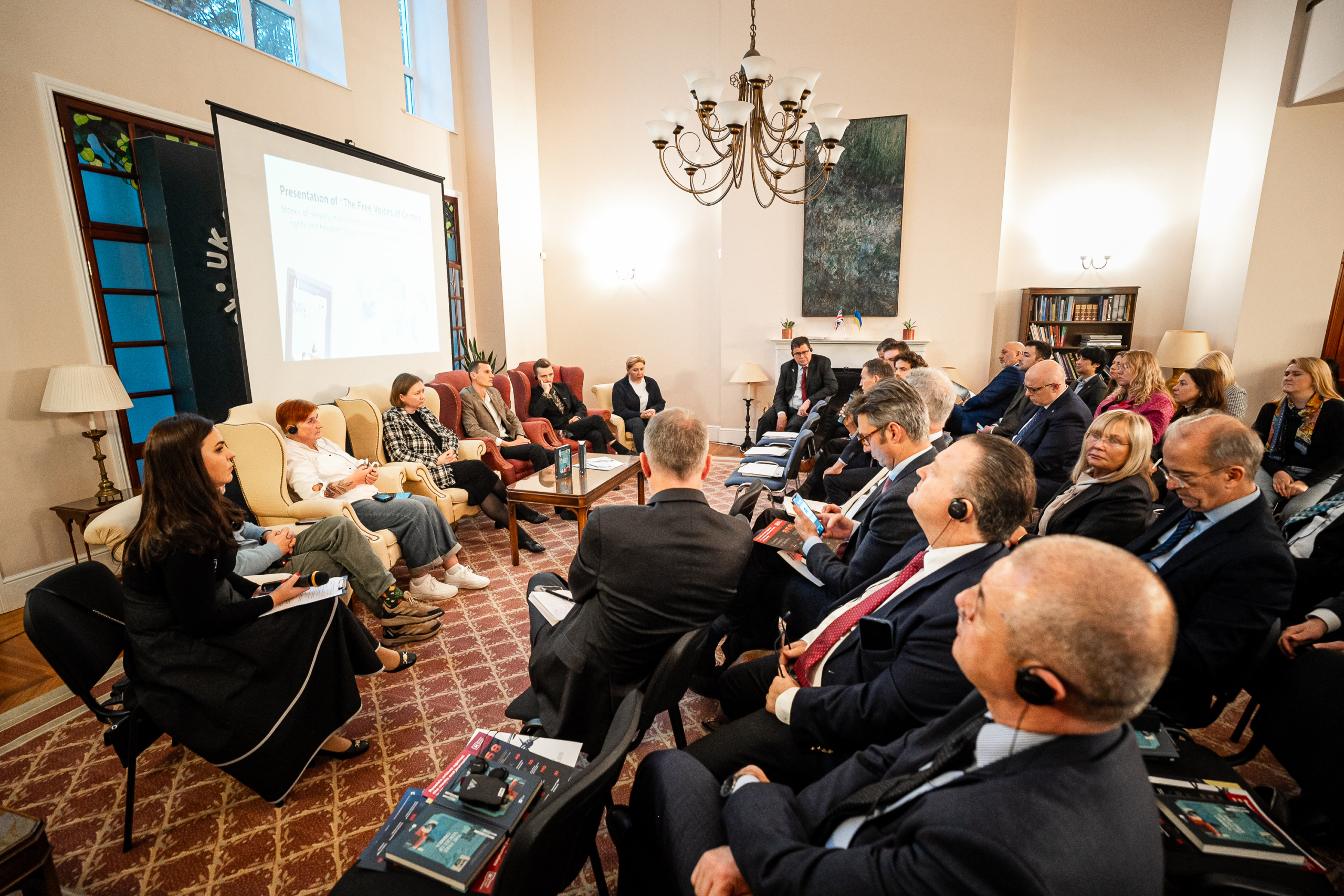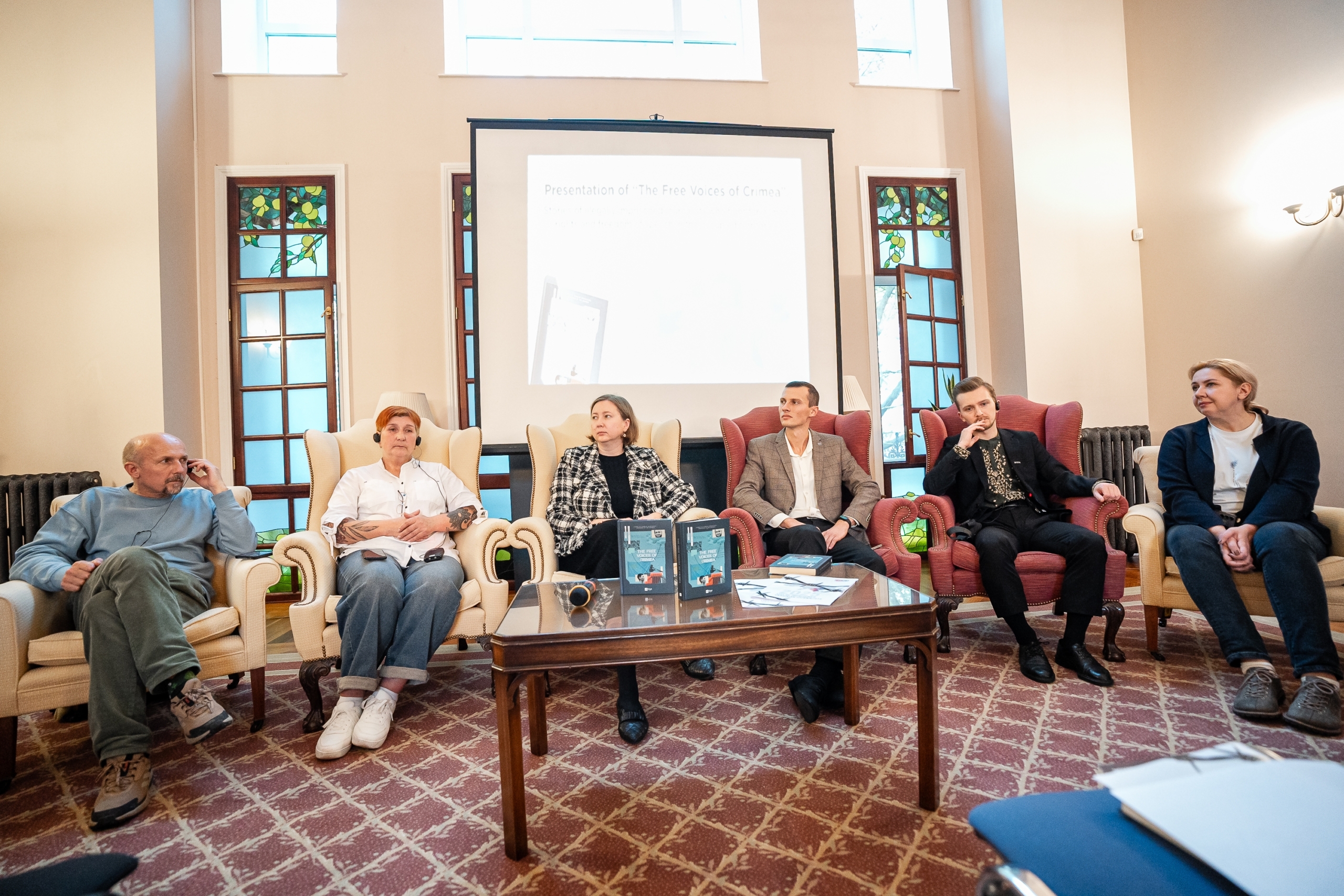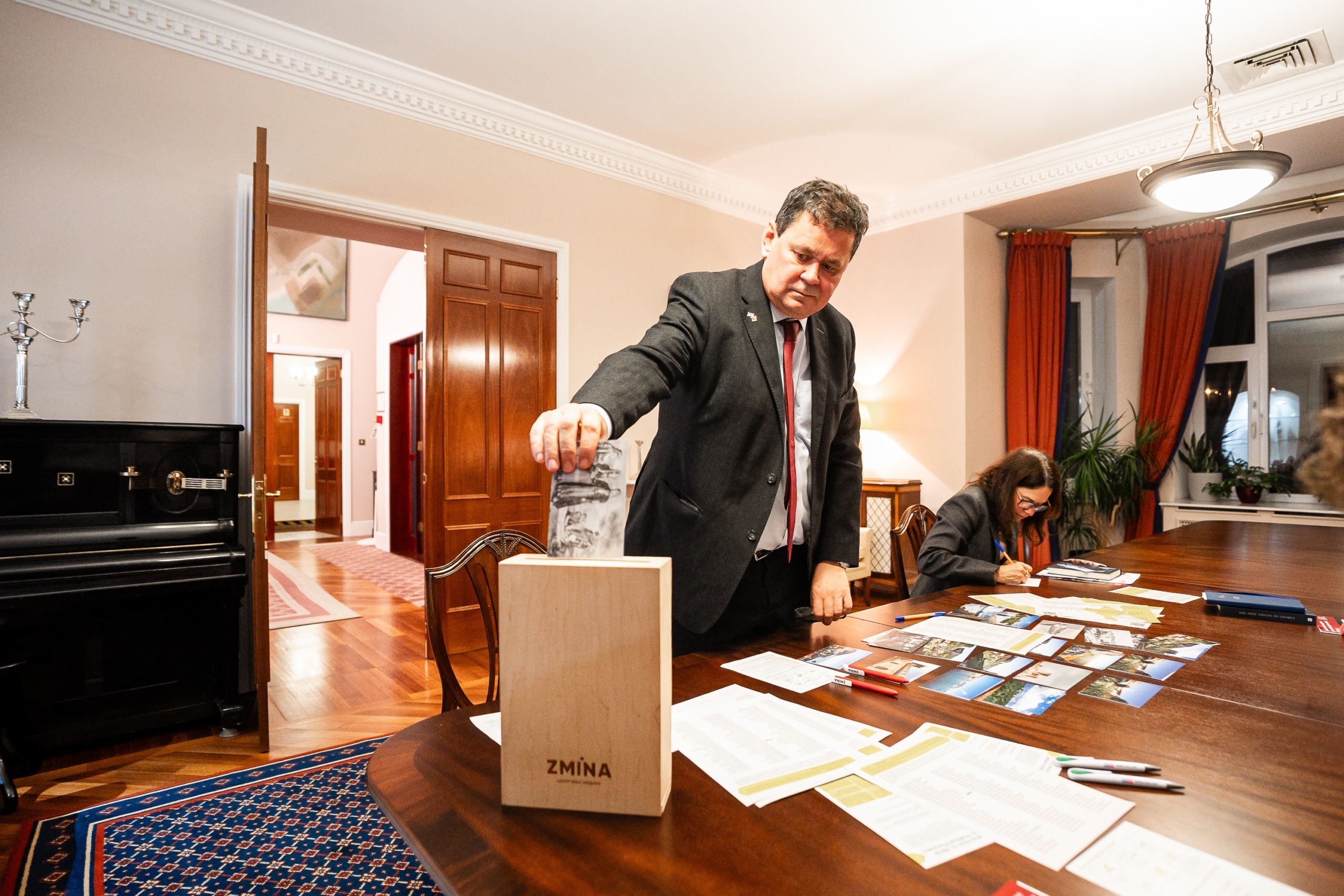The book “Free Voices of Crimea” was presented at the British Ambassador’s residence, where participants discussed journalists held in Russian captivity
On 5 November, the English-language edition of the book “Free Voices of Crimea” was presented at the British Ambassador’s residence in Kyiv. During the event, a discussion took place about how Ukrainian journalists continue to fight for freedom of speech despite the occupation.

The event brought together roughly 30 diplomats from different countries, as well as journalists, human rights defenders and relatives of unlawfully imprisoned media workers.
“The systematic persecution of journalists by Russia is not only a violation of international law, it is a direct attack on the truth itself. The United Kingdom is firmly determined not to let these crimes go unanswered. We call on the international community to join us in demanding the release of every Ukrainian journalist and civilian held in Russian captivity,” emphasized Neil Crompton, the British Ambassador to Ukraine.
 Photo: Neil Crompton
Photo: Neil CromptonAccording to Tetiana Pechonchyk, the Head of the Board of the Human Rights Centre ZMINA, who moderated the event, 26 Ukrainian journalists are currently being held behind bars in Russia or in the territories it occupies.
Journalist Dmytro Khyliuk, who was released from Russian captivity after spending more than three years in prison, spoke about the torture, hunger and inhumane conditions in which civilians are held.
“In captivity, we ate toothpaste because it made us feel like we had eaten something. People were kept in the cold, in rooms without windows, without any explanation for their detention. We had no contact with the outside world — we didn’t even know what was happening outside the window. I received my first and only letter from my family after two years,” said Khyliuk.
He called on diplomats to increase pressure on Russia, including economic pressure, so that it would simply not have the resources to continue the war and hold civilians in captivity.
 Photo: Dmytro Khyliuk
Photo: Dmytro KhyliukOlena Rudenko, sister of journalist Iryna Levchenko, imprisoned by Russia, spoke about the uncertainty her family has been living with for over a year and a half: “My sister stayed in the occupied territory because she believed she could be useful to people. She was detained right on the street. For 18 months, we didn’t know what happened to her. She is now in a Donetsk pre-trial detention centre awaiting trial. But after the trial, she will probably be transferred, and we will lose contact with her again. We deeply hope that the international community will be able to influence Russia to release civilian captives and journalists.”
Oleksandr Nykolaienko, the partner of journalist Yana Suvorova, imprisoned by Russia, said that the girl from Melitopol was sentenced by the occupiers to 14 years for “terrorism”: “She became a journalist by vocation — she helped people under occupation and moderated a chat room where people could find out the truth. She was detained at the age of 18, now she is 21, she is in the Taganrog pre-trial detention centre, incommunicado. She wrote: “I am afraid that I will be the next one to commit suicide”. We have no right to let this happen. I ask diplomats and partners to do everything possible to free our civilians and journalists.”

The Head of the Institute of Mass Information, Oksana Romaniuk, emphasized that Russia continues to systematically target journalists and violate international law with impunity: “We have already documented more than 1,000 war crimes against journalists. In October alone, three journalists were killed by drones equipped with cameras. These are targeted attacks. Russia’s impunity only encourages new crimes. There has been no punishment for the abduction of journalists so far.”
The Head of the Crimean Human Rights Group, Olha Skrypnyk, recalled that it was the suppression of independent media that marked the beginning of the occupation of Crimea: “In 2014, Ukrainian television and radio were shut down, journalists were persecuted, abducted, and forced to work under Russian law. Currently, 17 journalists are imprisoned in Crimea on politically motivated charges. Most of them are Crimean Tatars who simply documented searches and reported on the persecution of their people.”
The Head of PEN Ukraine, Maksym Sytnikov, stressed that each story of journalists described in the book is a testament to courage and a reminder that freedom of speech needs to be protected even in the darkest times.
“Freedom of speech is not just a principle or a declaration. It is about real people — Iryna, Yana, Vladyslav, Rustem. They did not remain silent, and that is why they ended up behind bars. It is our duty not to let these voices disappear. Culture and words are our front line, and we have no right to lose it,” he emphasized.
 Photo: Neil Crompton
Photo: Neil CromptonDuring the event, diplomats also wrote letters to unlawfully imprisoned Ukrainian journalists. These messages will be important signs of support for those who continue to fight for freedom of speech behind bars.
The presentation of the book Free Voices of Crimea is part of a broader campaign to inform the international community about the persecution of journalists in Crimea and the occupied territories of Ukraine.
Photo credit: Artem Halkin, ZMINA.
If you have found a spelling error, please, notify us by selecting that text and pressing Ctrl+Enter.















